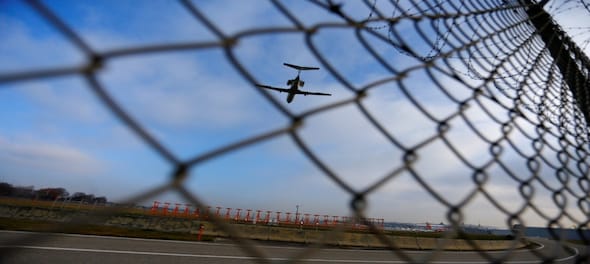
Global airlines grouping IATA has recommended to the government a risk-based outcome-focused approach to aviation security in the country, which logged a double digit passenger traffic growth between 2014 and 2018.
IATA (International Air Transport Association) in a study paper released Wednesday also recommended a slew of other measures such as allowing the use of mobile boarding passes, self-tagging options, adopting risk-based approaches instead of 100 percent in baggage screening and automation in
immigration facilities, among others.
"To sustain traffic growth in a continuously evolving threat environment and to ensure that capabilities and scarce resources are concentrated where the risk is highest, IATA believes in risk-based outcome-focused frameworks, balanced against industry stakeholders and governments capability, to
manage threats," the study, titled 'Aviation facilitation and security priorities for enhancing the passenger journey at airports in India', said.
IATA fully supports aviation security moving away from a one-size-fits-all prescriptive approach to a risk-based, results-driven model and effective implementation of the ICAO's Standard and Recommendations (SARPs) on such issue, it said.
In such a framework, risk assessment of potential concerns and threats should be carried out to develop mitigation actions that the Indian government may implement to achieve risk-based security programmes.
Risk assessments are essential to determining mitigating measures aimed at countering the threat to civil aviation, it added.
Additionally, IATA recommends implementation of a security management system (SeMS), IATA said.
In India there is a 100 percent pat-down of passengers carried out following the primary screening processes through the Walk-Through Metal Detector (WTMD), the study paper said, adding while this may be performed to strengthen security screening which IATA fully supports, it is recommended that such an exercise be performed on a random basis for passengers who do not trigger the WTMD alarm.
According to IATA, Indian airports are understood to be deploying body scanners from this year.
"In view of this and regardless of the deployment model of the body scanners, either as a primary method or to complement the WTMDs, the principles of randomness and unpredictability should be applied on a number of passengers who do not activate the body scanner or WTMD alarm, whereby they and their carry-on items are subjected to secondary
screening including manual search," the study paper said.
Check out our in-depth Market Coverage, Business News & get real-time Stock Market Updates on CNBC-TV18. Also, Watch our channels CNBC-TV18, CNBC Awaaz and CNBC Bajar Live on-the-go!


Lok Sabha Election 2024: Phase 5 voting concludes with over 57% voter turnout, experts weigh in on key battles
May 20, 2024 11:07 PM
BJP holds meeting in Delhi as polling underway for 5th phase
May 20, 2024 4:21 PM
UP Police arrests man after viral videos shows him voting multiple times
May 20, 2024 2:18 PM

